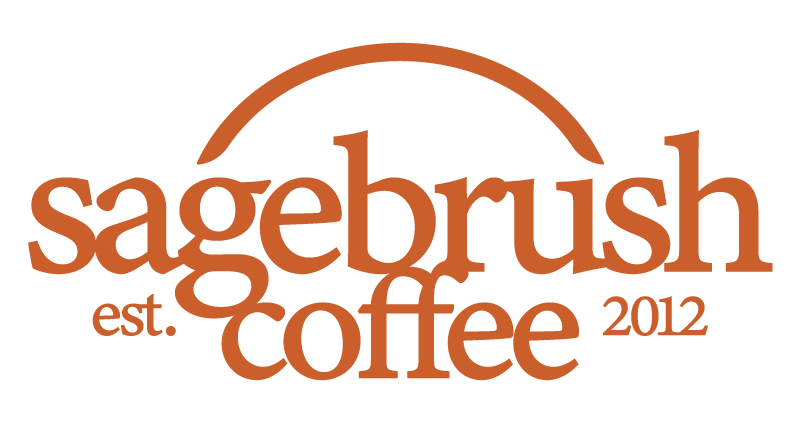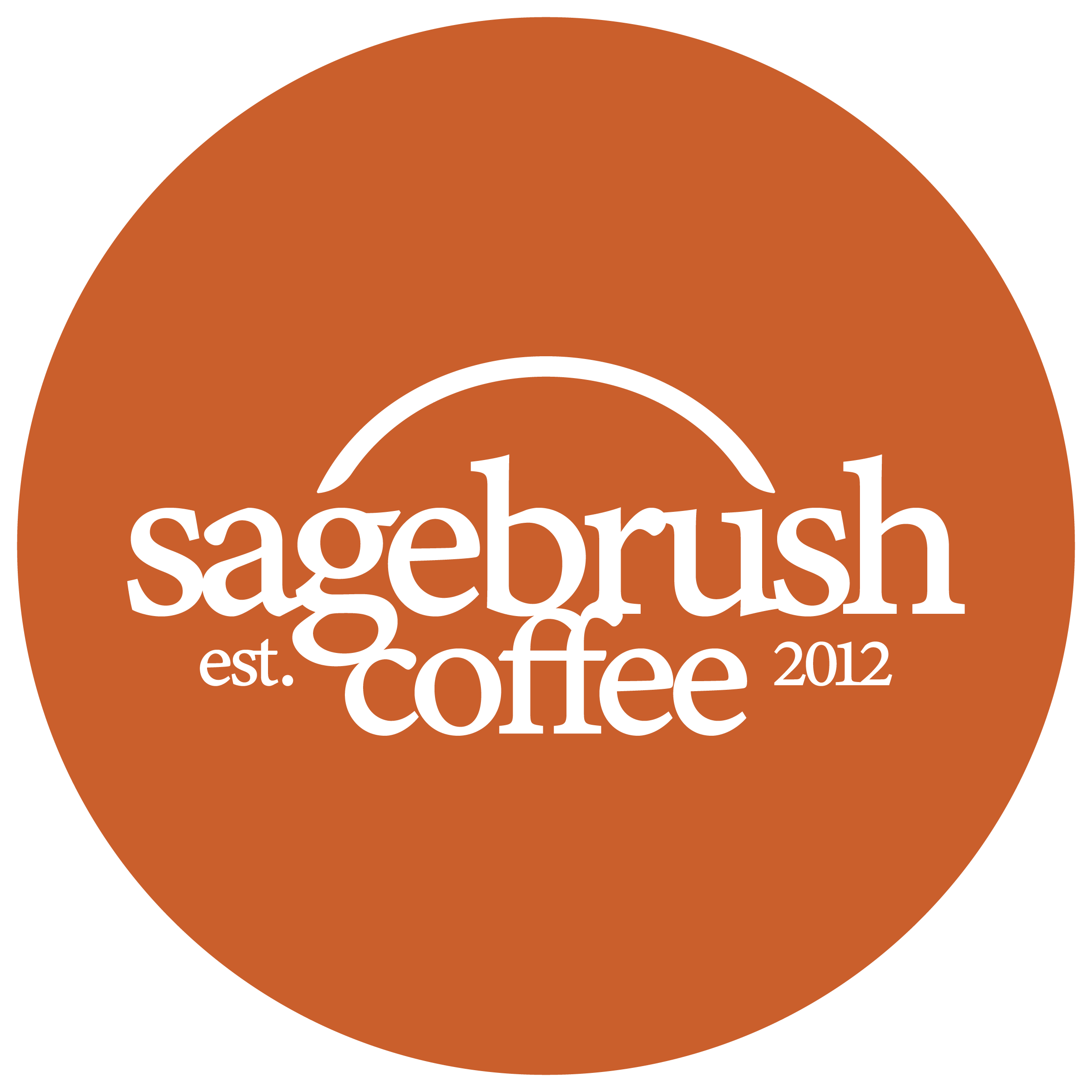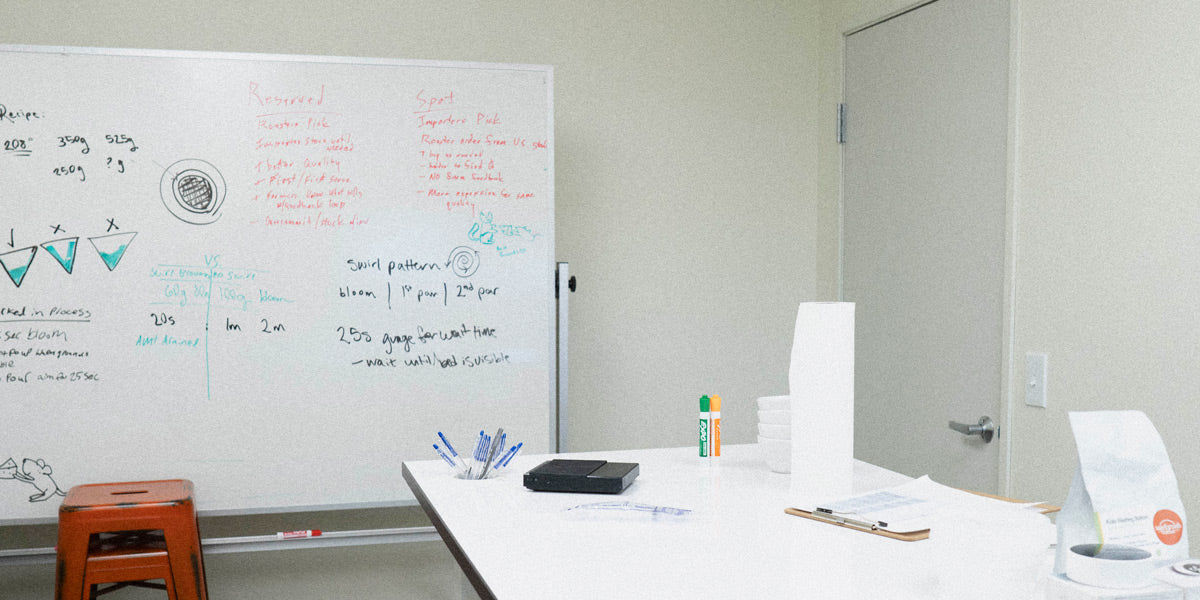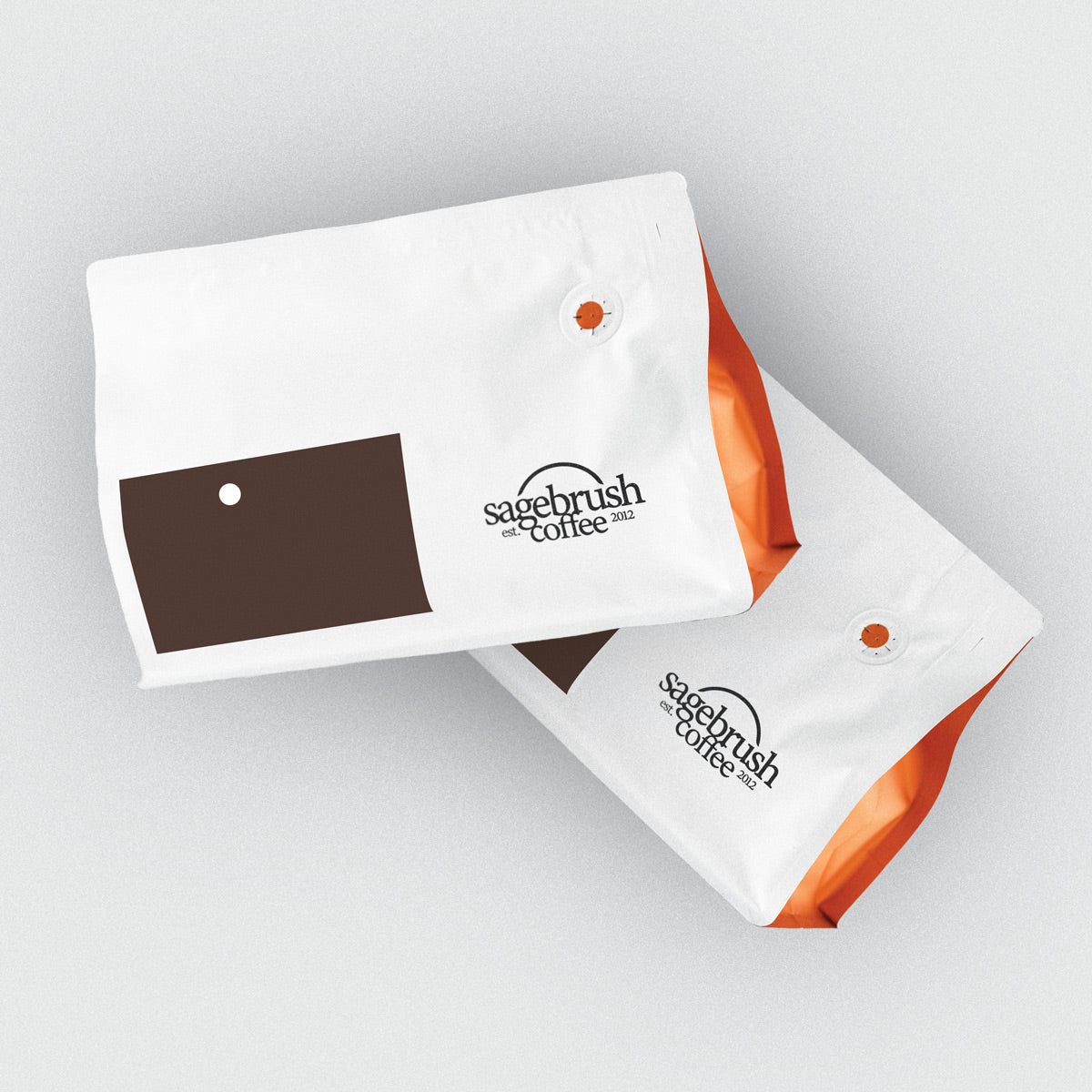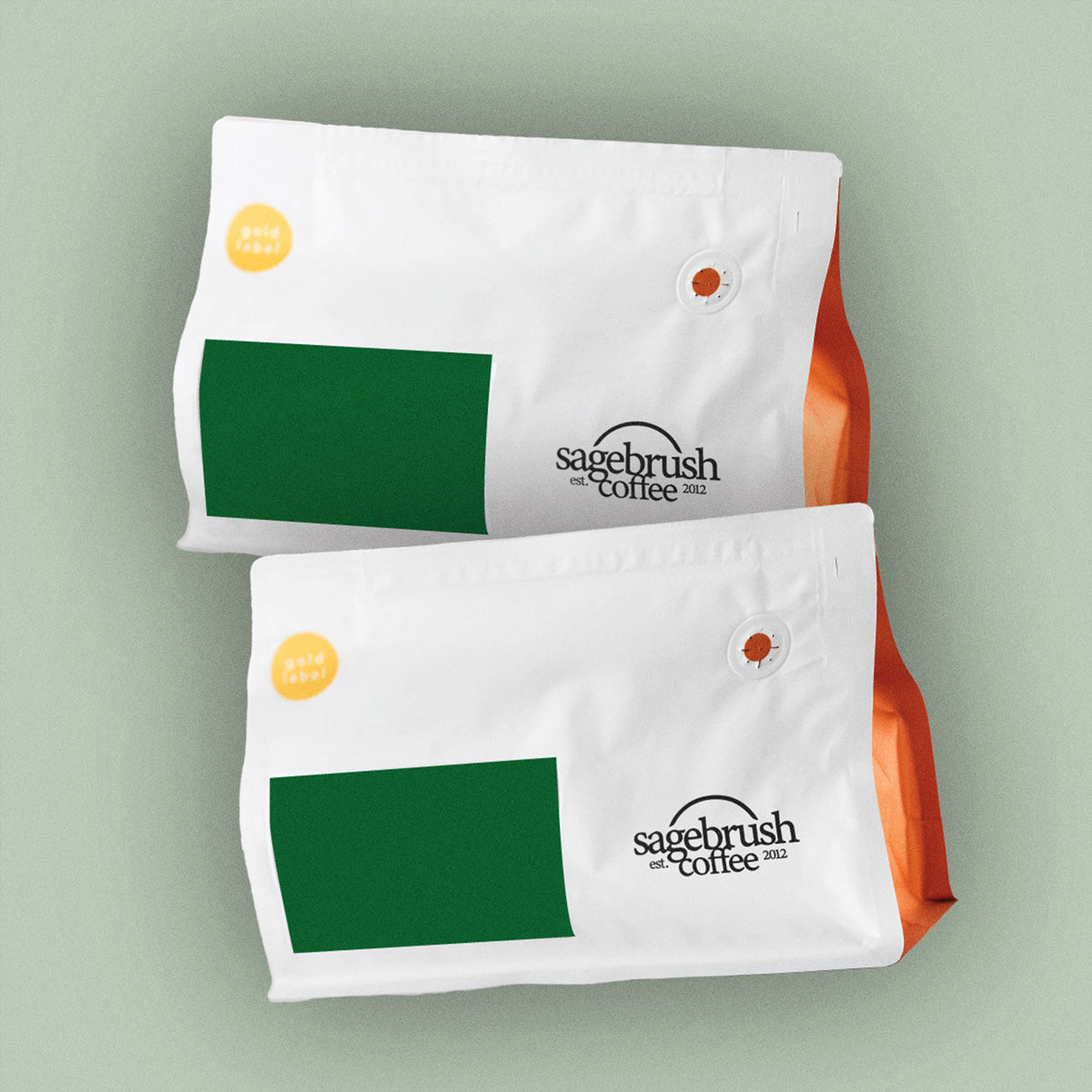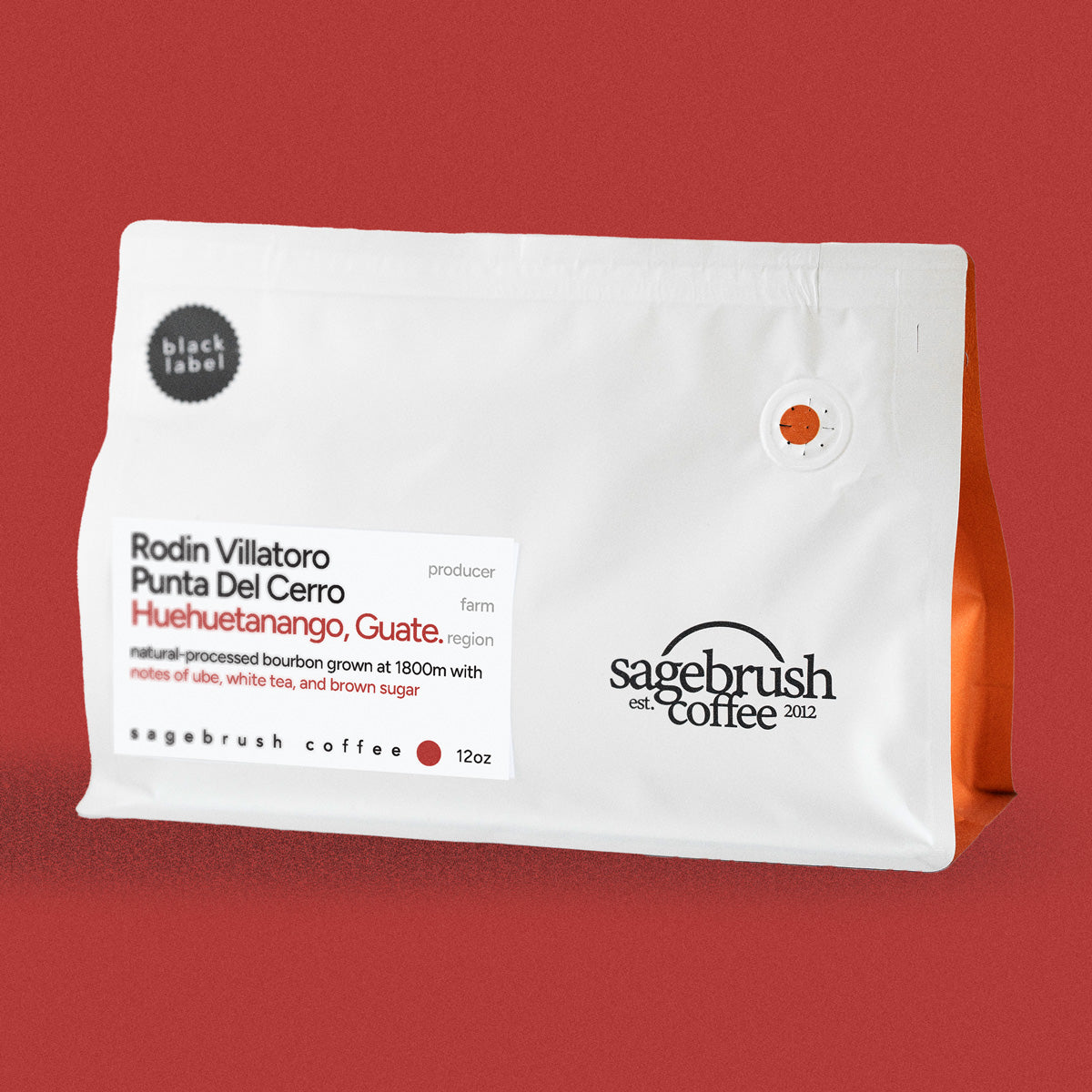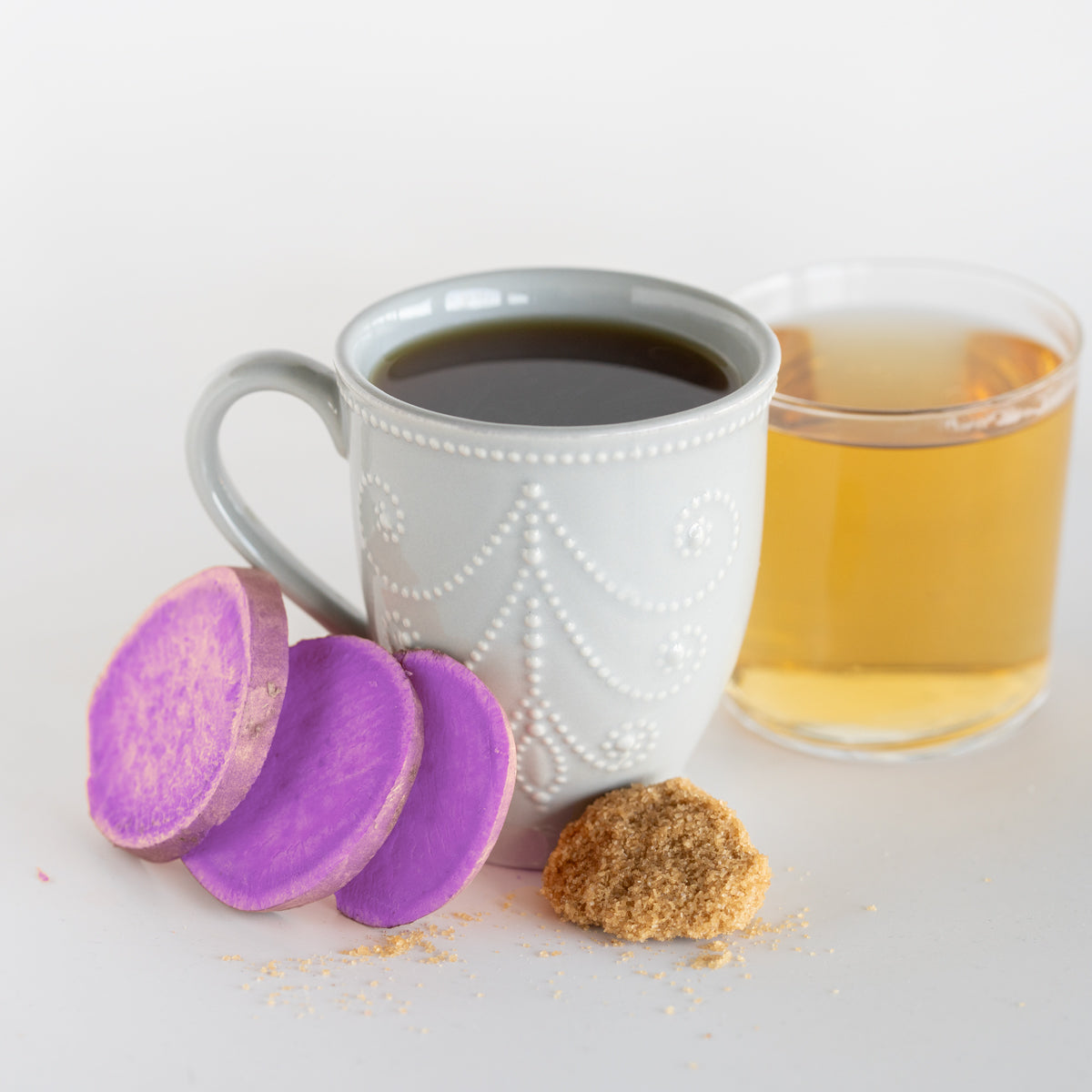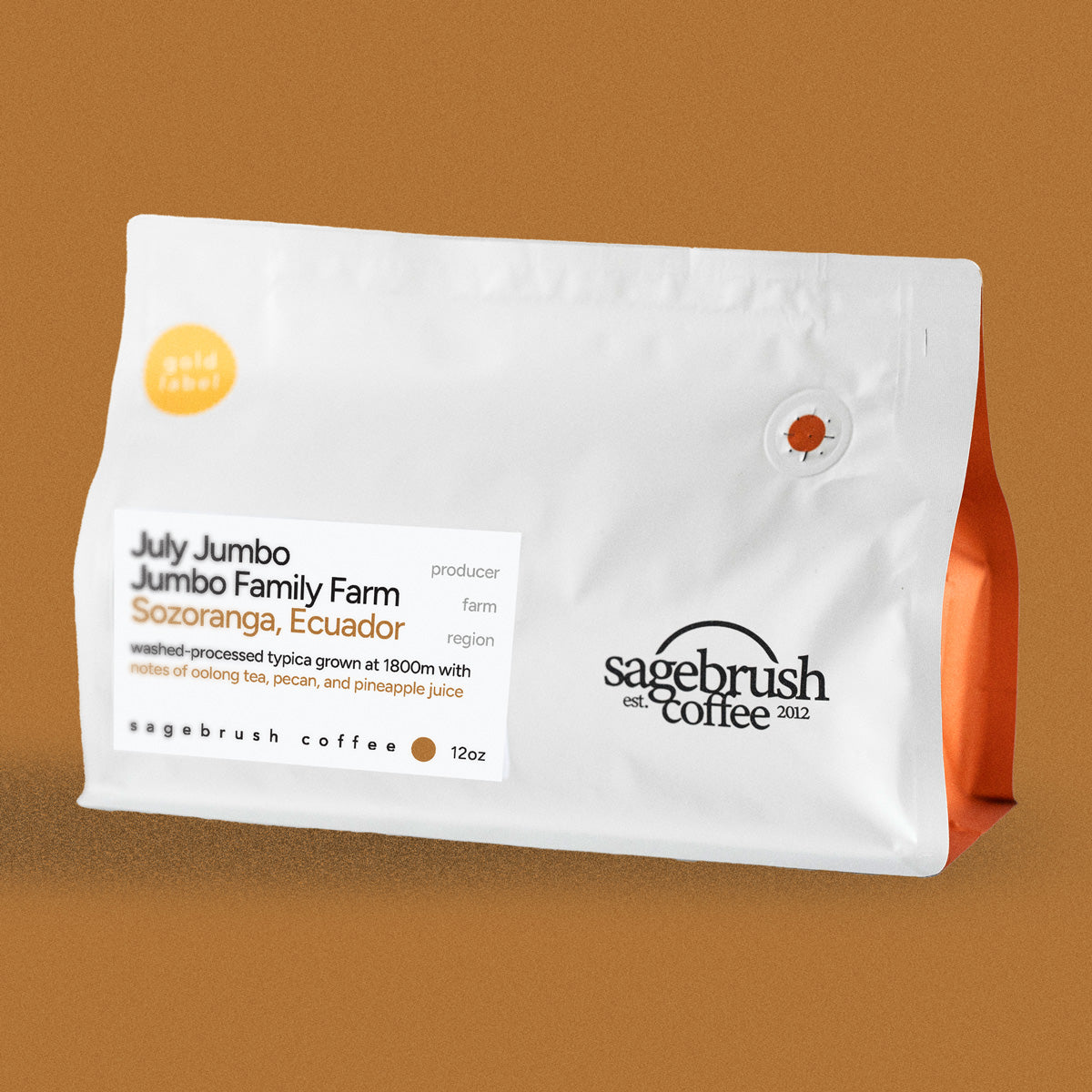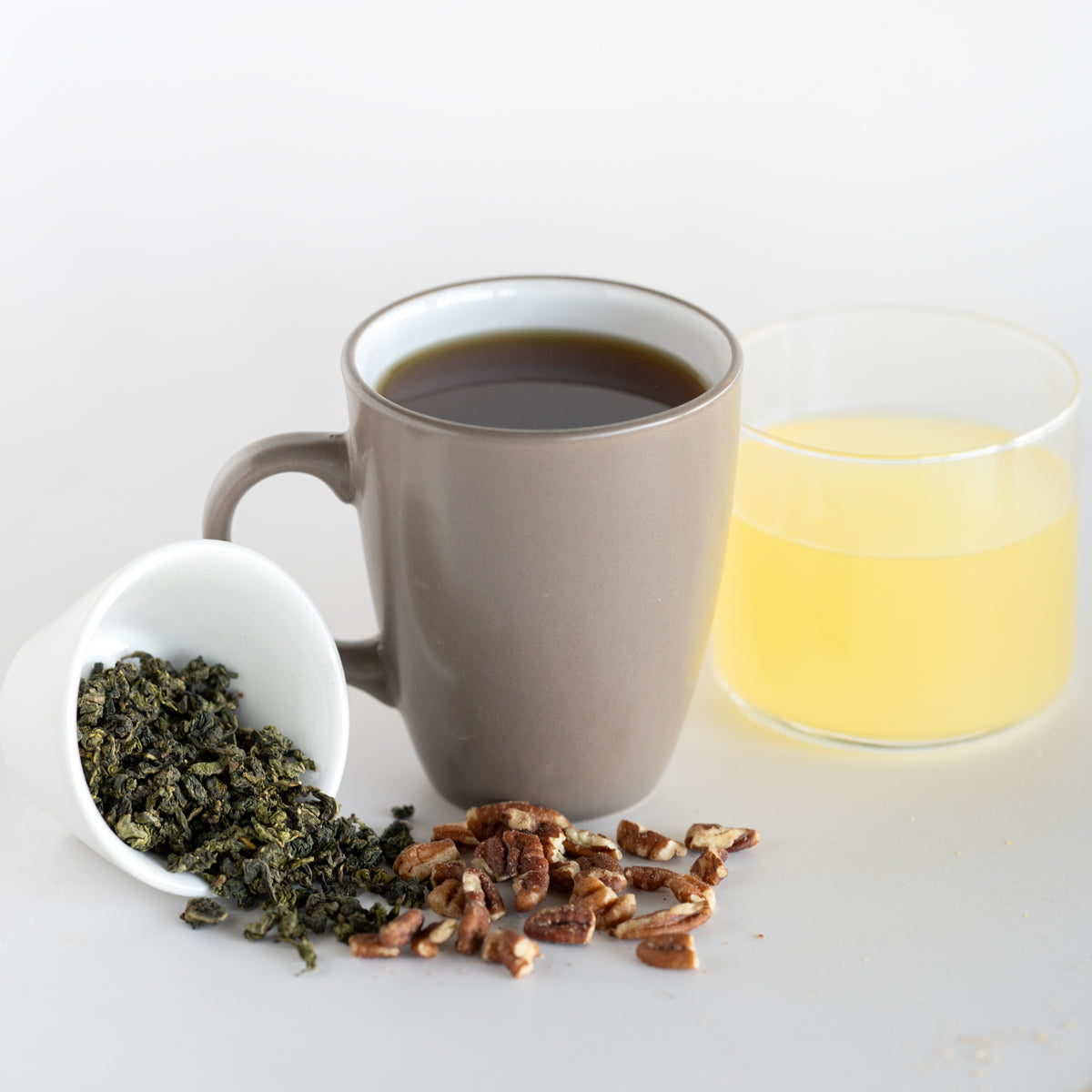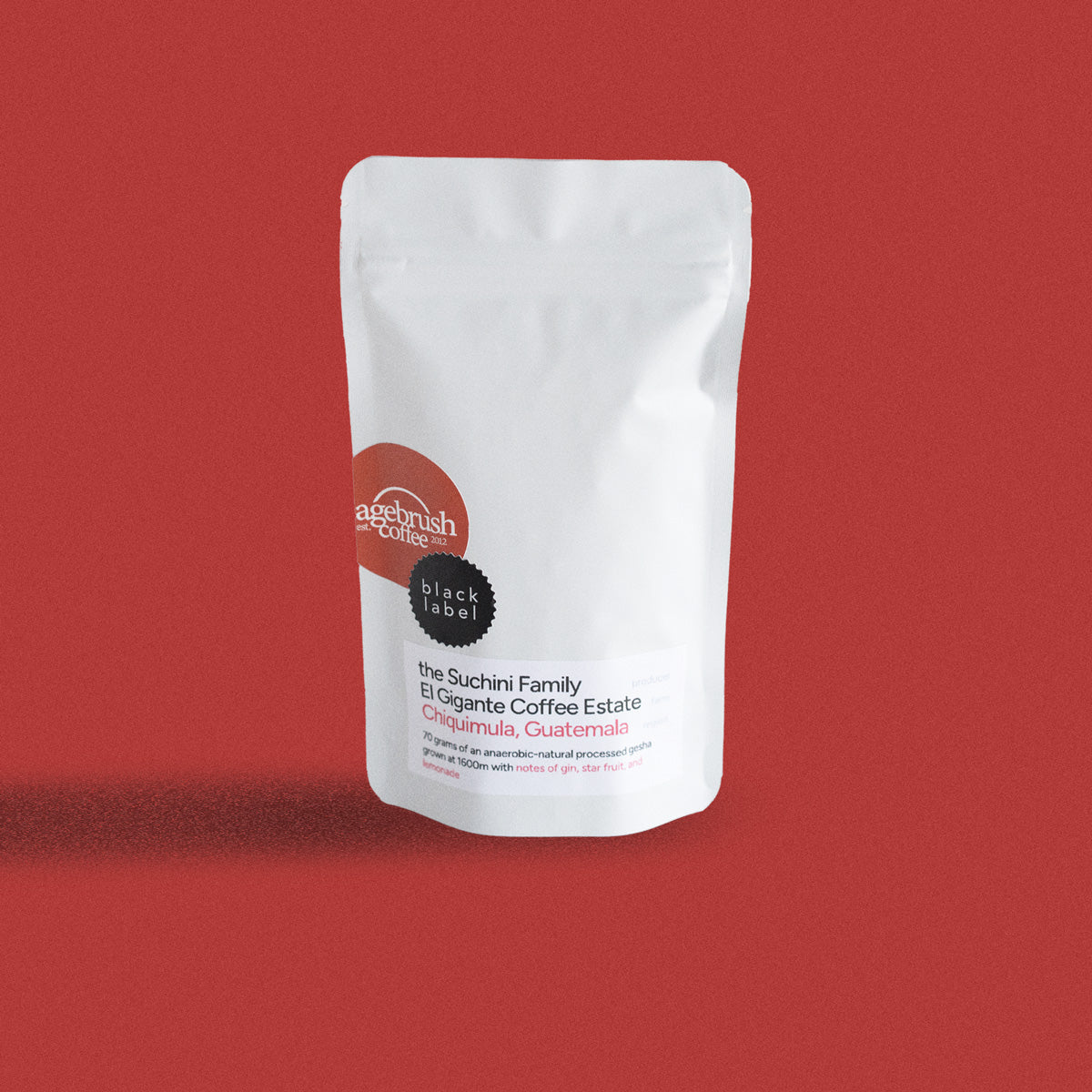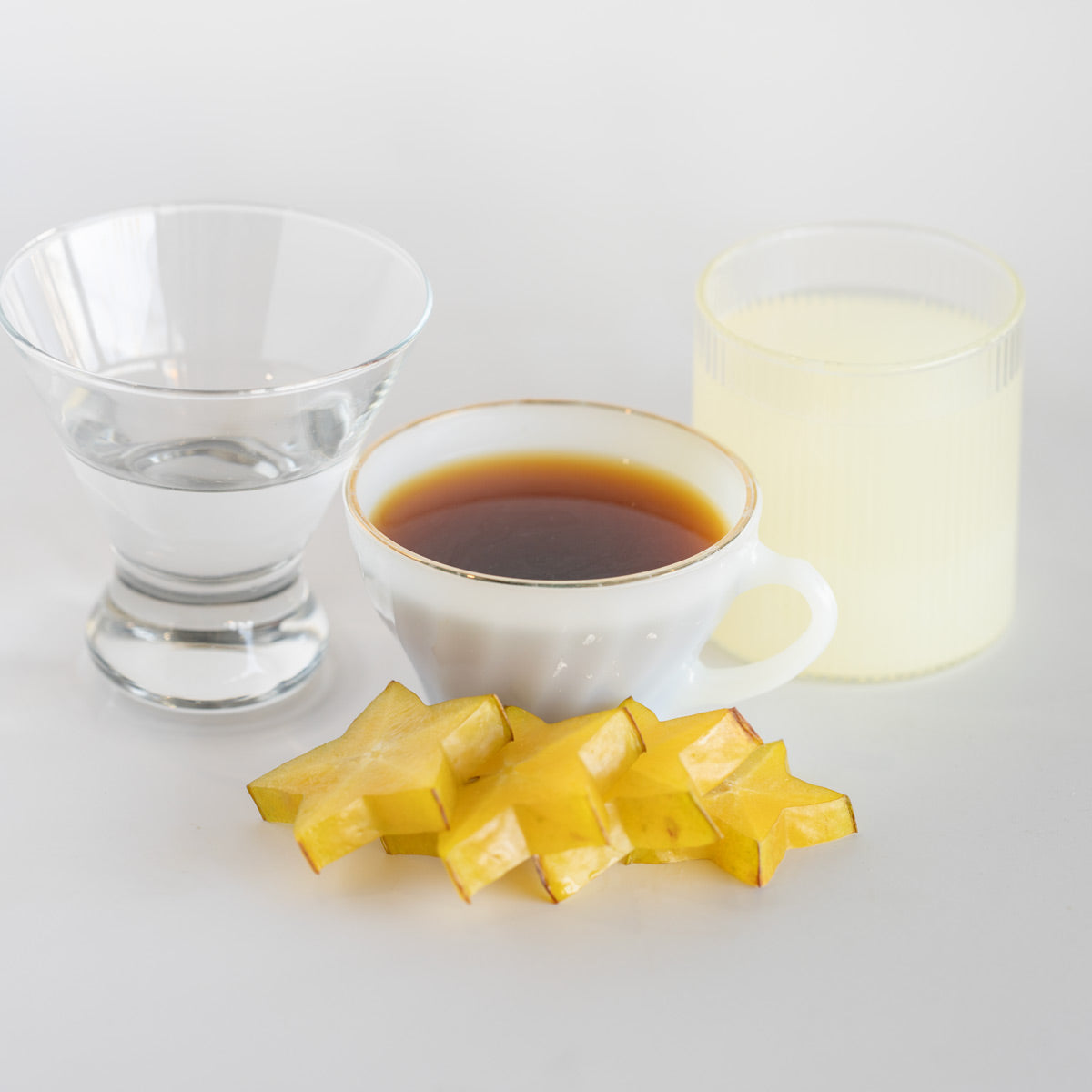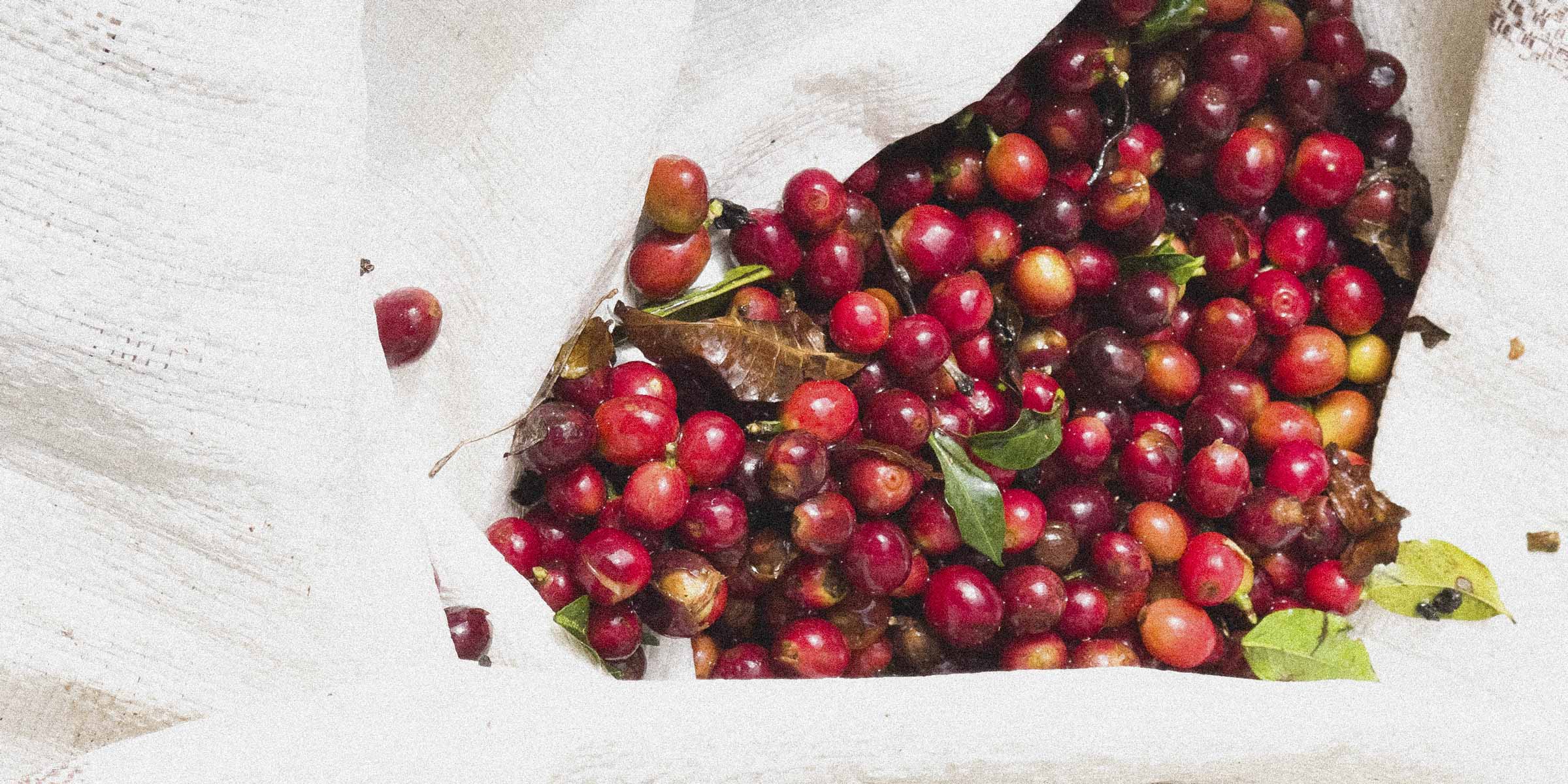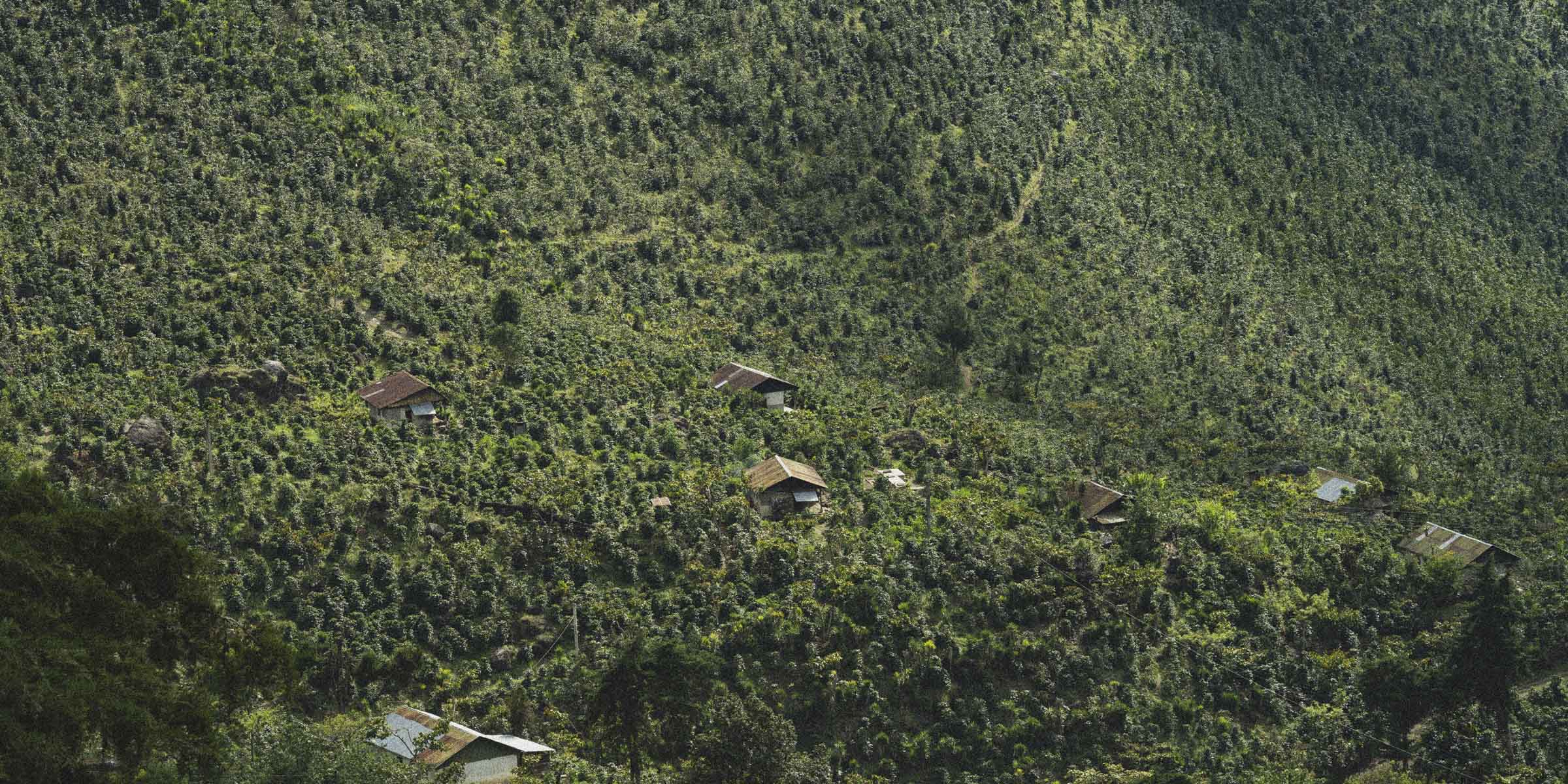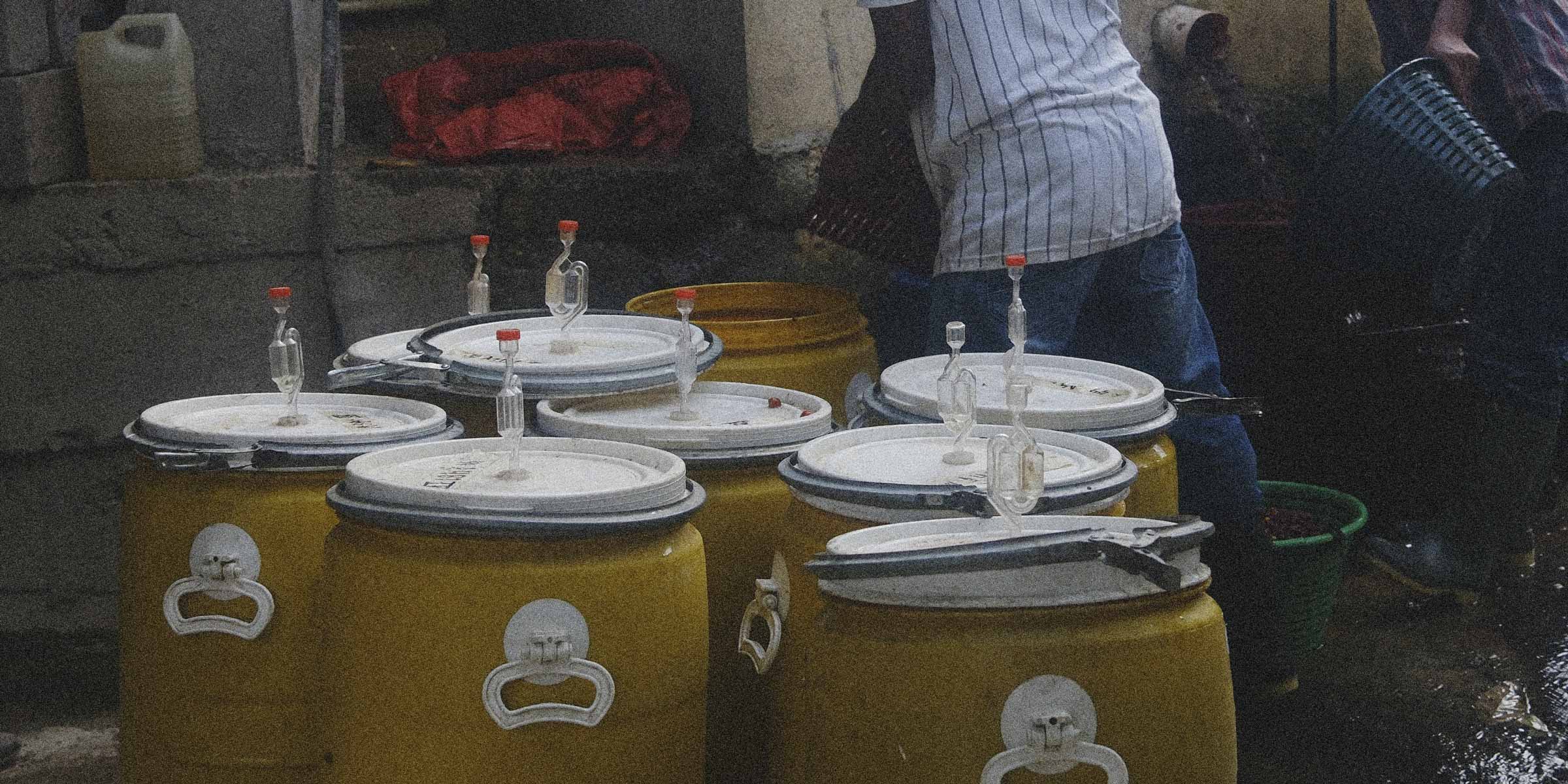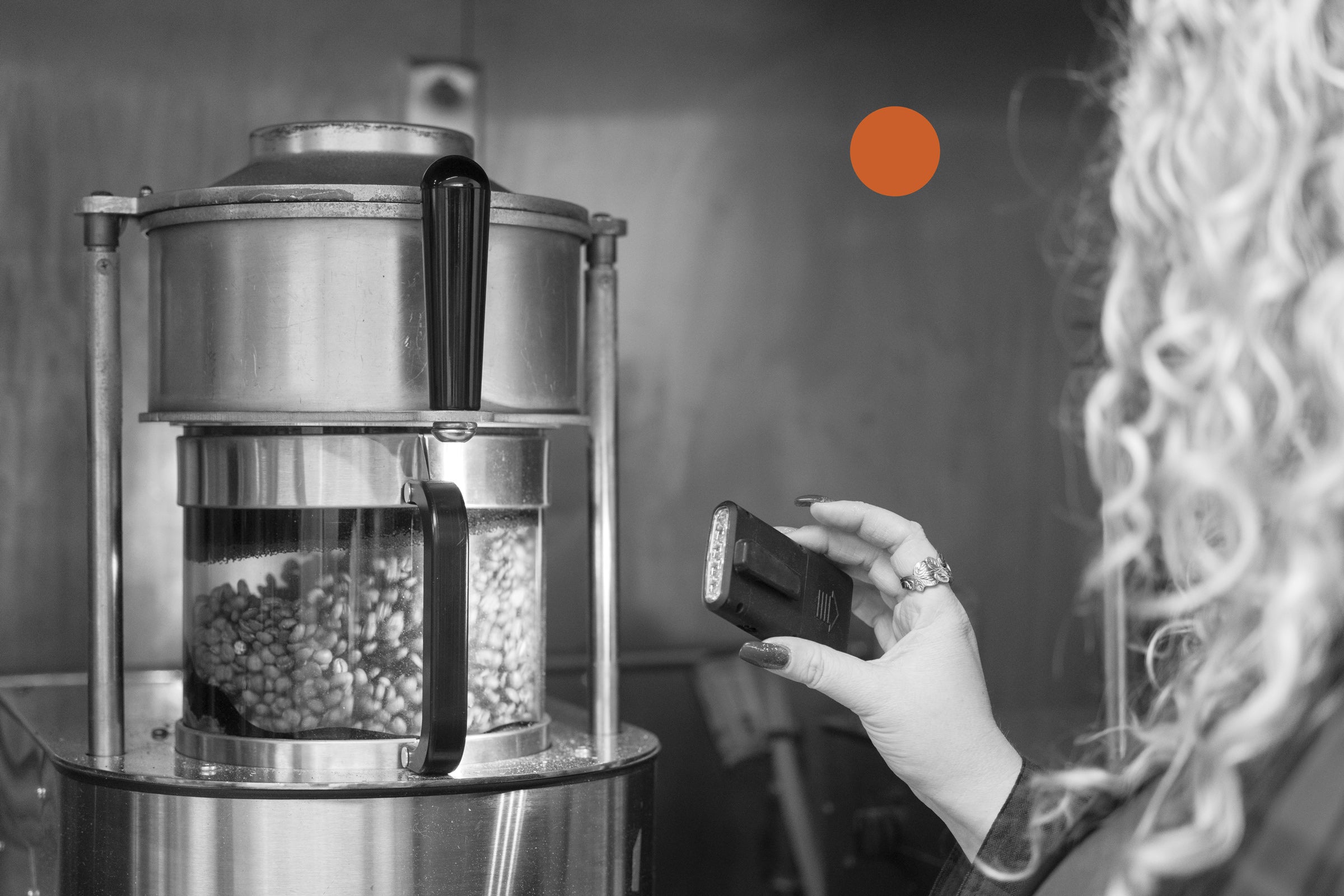
Why do we sort things the way we do?
If you have perused our website, you might have noticed that we categorize our coffees by a few different classifications. Both Gold Label and Black Label stand out and then there are the ‘unlabeled’ or Brown label coffees as we reference them internally. And apart from knowing that some coffees have an extra little stamp on their product, it may be difficult to distinguish why our coffees are labeled the way they are. Certainly there is a price correlation, but there is more to it. Our classification system categorizes three incredibly important pieces of what Sagebrush is as a coffee roastery. If we cut any one of these categories, we wouldn’t be all of who we want to be as a specialty coffee roaster.
Brown labels encapsulate the 1st third of why we run a coffee business: to develop the specialty coffee industry.
Gold labels are the 2nd third of why we run a coffee business: to foster personal connections and relationships across the world of coffee.
Black labels are the final third of why we run a coffee company: enjoying some freakin’ good coffee.
Price is a correlation, not a causation of these labels
For us, price-point thresholds act more as “weight classes” on our cupping table. When comparing coffees, we’re not assessing if a less expensive coffee will taste more interesting than a super expensive coffee; that answer is obvious. We’re assessing if that less expensive coffee stacks up in quality compared to other similarly priced coffees we have, and if the expensive coffee stacks up to other expensive coffees we have. Essentially, we’re not looking for the highest quality coffees all the time, we’re looking for the highest value coffees.
Let me break that down further. The chicken and egg of the specialty coffee is cost and taste. From a big-picture perspective, the market determines what tastes good. We as consumers have power in our buying to determine the value of a product. But, there is a level of objectivity to the association of more intentional farming that impacts the clarity and complexity of a coffee's flavor profile. So, there are farmers who are investing in so many different facets of their coffee production, paying more for it, and charging more because of it. And then there are consumers who are recognizing this intentional care in the final cup of coffee and are willing to invest to have that coffee. At the end of the day, you pay more to make something, you must charge more to sell it. And the taste is the result of the care and the care is the reason for the price.
The specialty coffee market does have influence as to what coffee profiles are deemed valuable. You may see some coffees from roasters or producers that have cup scores. Cup scores are basically an obsessed professional’s subjective grading scale. AKA, it’s someone’s opinion, but it’s the opinion of someone who knows what they’re talking about. As much as it would be helpful for this grading system to be streamlined and consistent, you will still have variability almost no matter what, making it a fairly lackluster means of determining objective value. These grading systems are definitely more valuable on a cupping table, where everyones palates are calibrated together and guidelines are given as a control group for assessment. But when you are sourcing dozens of coffees from all over the world and want a streamlined way for people to understand the relative quality of our offerings, this is simply not the way to do it. Therefore, these brown label, gold label, and black label tags help give a general indication of the quality you will receive without making it a seemingly objective system.
In all categories, we are meticulously cupping, sourcing, and offering the best coffees we can find, and the goal is to acquire the best value.
Taste is subjective. Monetary value is objective.
Everyone’s palate and preferences are different, and that’s totally okay! Your favorite coffee we offer may be the cheapest bean we have. For some, it may be the most expensive, it’s simply a matter of the consumer’s approach and values. The greater the splurge, the more perceived value the product is. A $1500 Saint Laurent button-down shirt is certainly not 100 times the quality of a $15 button-down from Target, but it is significantly higher quality regardless. People often buy the expensive stuff for the enjoyment of a nice thing. Coffee can be the same way. There’s just something about high-quality coffee that makes it that much more of an experience when you buy it.
Classification breakdown
Brown labels -
Brown labels encapsulate the 1st third of why we run a coffee business: to develop the specialty coffee industry.
If not for those who come before us in the supply chain, we would not be the company we are today. In light of that, we see it critical to help producers in whatever way we can to develop in their craft as well. Our brown labels are where we seek to feature the best coffees we can find from up-and-coming producers, regions, and co-ops. For the most part, due to the more restricted access to particular details about the coffee, we can get our hands on these coffees at a lower price point and in higher quantities. Economically stimulating less developed producers can be the most impactful way to push coffee forward because it provides more opportunities for driven, like-minded producers to perfect their craft. There are many programs throughout the world that are dedicated to this mission, and our goal is to support these systems by providing their coffees and sharing their stories.
Gold Labels -
Gold labels are the 2nd third of why we run a coffee business: to foster personal connections and relationships across the world of coffee.
These coffees are the frontrunners for accessible hyper-transparently sourced beans from premier farms across the world. This is our top-tiered standard in our coffee offerings and they are a presentation of the quality you ought to expect from Sagebrush coffee. We love fostering relationships with the farms from whom we buy coffee. This consistent line of communication with producers and importers is what we’re all about here, and our gold label offerings usually highlight that the most.
Black Labels -
Black labels are the final third of why we run a coffee company: to enjoy some freakin’ good coffee.
Black labels are the best coffees we can find period. Whether it’s a hyper-limited crop or an auction lot, we do not let cost be a prohibiting factor in our search for the finest coffees in the world. Black labels will always be more expensive, because the more steps that you’re intentional with along a beans journey, the more you will have to pay, that’s simply how economics works. The higher quality things take more work to make along the way. Likewise, these are the coffees we are most intentional with. These are the coffees we are most intentionally cupping and assessing, the coffees we’re most intentionally marketing, and the coffees we are most intentionally sharing. Each coffee will have a unique story with much more complexity than your standard coffee. These are the splurge beans, for the one who drinks coffee for the taste, not the caffeine.
All coffee ought to be celebrated, and as one coffee roastery in Chandler Arizona, we believe we are making as big of an impact as we can make, one coffee release at a time!
